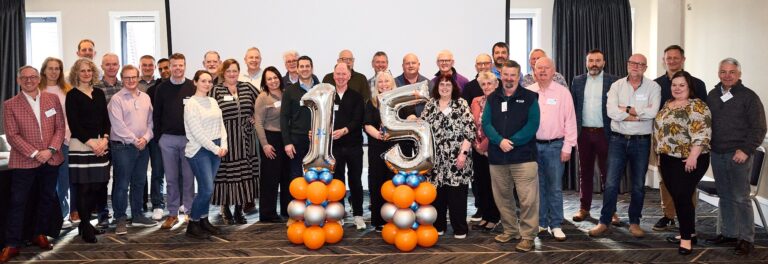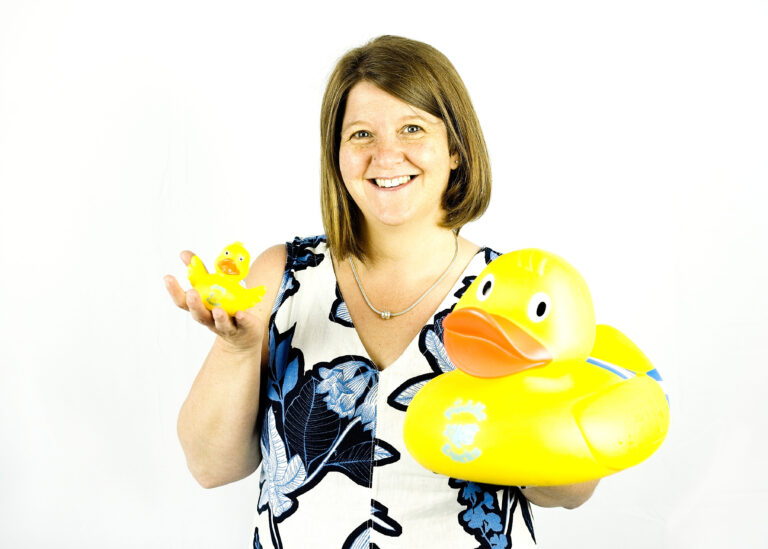The Franchisee Network Spotlight Interview – Gabriel Moreno
In 2004 Gabriel Moreno came to the UK from Venezuela to study International Business at the University of Bournemouth. He took on a student job as a Sandwich Artist in the local branch of Subway, and just a year and a half later was running the operations for that store.
Along with a business partner, he has since built up a portfolio of both Subway and CeX franchises, and has recently invested in Arepa & Co which is their first non-franchise business.
He talks to The Franchisee Network about his diversification strategy and the lessons he has learnt along the way.
How did you make the move from employee to franchisee?
A single-unit operator called Martin Graves owned the branch of Subway that I had a job in. I got to work with him quite closely, and after some time as a Sandwich Artist, I began to suggest ways to improve the operation of the business and soon rose up the ranks to Store Manager.
By this stage, I was effectively running the majority of the business while Martin looked after the finances and the relationship with the franchisor. I began to talk to him about expanding and put myself forward to invest in another Subway store in partnership with him.
We opened the second store together in 2006 and then went on to open a further 14 stores by 2012.
In 2012, you invested in your first CeX franchise – how did you reach that decision?
It became more difficult to find growth opportunities with Subway in our region, so we started to look for another brand that would complement our existing portfolio.
We came across CeX and it seemed like a good fit for us. At the beginning, we effectively just replicated what we had done with Subway. But, as the portfolio grew, we had to start adapting the way we ran the business. For example, we scaled up our internal HR and accounts functions, and our personal roles also changed. Martin’s focus has shifted to the legal and property side, while I take care of operations, our relationship with franchisors and expansion strategy.
So, what is the current store count?
We currently have 12 Subway stores and 16 branches of CeX with the view to expanding to 20 by 2020. Last year, we started trying to build our own brand for the first time with a casual dining restaurant called Arepa & Co. The second branch is now up and running, and we’re looking to open the third later this year.
What was your motivation for building up your own brand rather than investing in another franchise?
Well, I suppose the first thing to say is that we haven’t ruled out investing in another franchise brand. If the right opportunity came up we would consider it because really, at our core, we are a still franchise operators.
Having said that, with Arepa & Co, there were two main motivators. Firstly, I wanted to go back to my roots and introduce more people to Venezuelan food. Secondly, we were looking for ways we could transfer the skills we’ve learnt building up a franchise portfolio to another business.
Arepa & Co started life as a food stall in Camden Market which was trading for couple of years before opening their first ‘bricks and mortar’ branch. At that point, we approached the owner to say that we liked the concept, we liked his ideas and we’d like to buy the business with a view to expand it. The original owner is still involved, but we now own the majority stake in the business.
How has running Arepa & Co differed to looking after the operations of a branch of Subway, for example?
I think you truly begin to understand the complexity of the role of a franchisor when you start trying to run a new business without that level of support. Things that we have never really had to think about with Subway are now key considerations. For example, things like marketing strategy, sourcing ingredients, managing the logistics are all new to us.
A lot of the work we’ve done with Arepa & Co so far has been on fine-tuning the business model. We’ve had to adapt our menu to suit customers, especially in London where the demand for vegan and gluten-free options is high. We’ve also looked at our ordering process to maintain portion control and minimise waste.
Are there and particular lessons that you’ve learnt as a franchisee that you’ve applied to Arepa & Co?
I think when it comes to people management, there’s a lot of cross over in terms of the way that we look to hire and develop the team.
Property is another key area. Having the experience of dealing with commercial property – not just in the sense of acquiring it, but also managing new fit outs and maintaining standards – has been invaluable.
The financial side of things is also broadly the same in terms of controlling costs etc, so there are a lot of skills that you gain as a franchisee that transfer well to running a stand-alone business.
Have you faced any challenges juggling the franchised elements of your portfolio with Arepa & Co?
It isn’t always easy! We are currently one of the largest multi-unit franchisee of CeX, so I’m highly involved with the brand and I was a founding member of the CeX franchise council. As a result, I spend a lot of time talking to department heads about how to resolve issues and the growth of the business.
Then I guess I have to change hats when I am thinking about Arepa & Co. Decisions that would be made collaboratively with a number of different stakeholders at CeX now fall under my responsibility with a much smaller management team.
We just have to adapt to a different way of working. We need to transfer as many skills as possible without falling into the trap of expecting a new business to run in the same way as an established franchise brand.
Would you recommend this approach to growth to other franchisees looking for ways to expand their business?
When it comes to investing in a franchise – as long as you have done your research properly – it is a fairly safe investment. Lots of franchise brands have many trading units, often in a number of different countries, which allows the franchisor to closely monitor trends and adapt the business to safeguard their franchisees.
For us, that makes the decision to invest in a brand fairly simple – the key is really to get the location right. Out of the 30 units we currently operate, I would say we got 2 or 3 of those wrong, so the risk of failure is pretty low.
If you decide to invest in a new business, you have to accept that you are taking on a much higher level of risk. Thanks to the size of the wider business and the skills that we have built up, we are able to stomach that risk. Without that cushion, I don’t think I would have made that same decision – quite simply I couldn’t afford it if it went wrong!
What is your long-term goal for Arepa & Co – would you consider franchising it?
Obviously we’d like to reach the stage where it is a globally recognised brand. In the short-term we planning to open 10 branches in London and then assess at that point what our best strategy is. That decision will be based purely on the figures and brand appeal – we may decide to take it outside London ourselves, franchise the business or look for venture capital.
Are there any particular trends that you see within the franchise industry that you think represent potential areas for growth
I think one of the common challenges within franchising is staff costs. Many franchise brands operate at the lower end of the spectrum when it comes to wages, so the continual rise of the minimum wage puts increasing pressure on margins. As a result, any brand that can tackle that issue effectively is of interest to me.
I also think the nature of the high street is changing. We are moving towards a more experiential retail space rather than purely transactional, so I expect franchises that manage to combine the two profitably will also do well.
When assessing a potential franchise opportunity, what would you look for?
Brand culture. One of the things we have learnt over the years is that it is incredibly difficult to move a member our team from Subway to CeX or vice versa. It is nothing to do with a lack of skills, they just struggle to adapt to a new set of overarching priorities. This, to me, just underpins how important brand culture is.
The only way to attract, engage and retain good team members is if they feel like they are part of a bigger mission and, with a franchise, a lot of that is dictated at brand level.
And, finally, why do you think initiatives like The Franchisee Network are important for franchisees?
When you are franchisee or a director of a company, there generally aren’t many people within the business who do the same thing that you do that you can seek advice from.
Attending events with other franchisees offers you the chance to meet people who may be uniquely positioned to offer advice on an issue you are currently facing. You can also build connections with people who can offer a different perspective on how you might grow your business, or even present you with acquisition opportunities if you or they are looking to exit.
If you are looking to grow your business, getting involved in the wider franchise community can have significant benefits.
———————–

What is The Franchisee Network?
The Franchisee Network is a new initiative designed to help existing franchisees build connections with other business-owners from a diverse mix of franchise brands. It will allow you to learn from and collaborate with like-minded entrepreneurs as you navigate the challenges of running your own business. Find out more about joining The Franchisee Network here.



